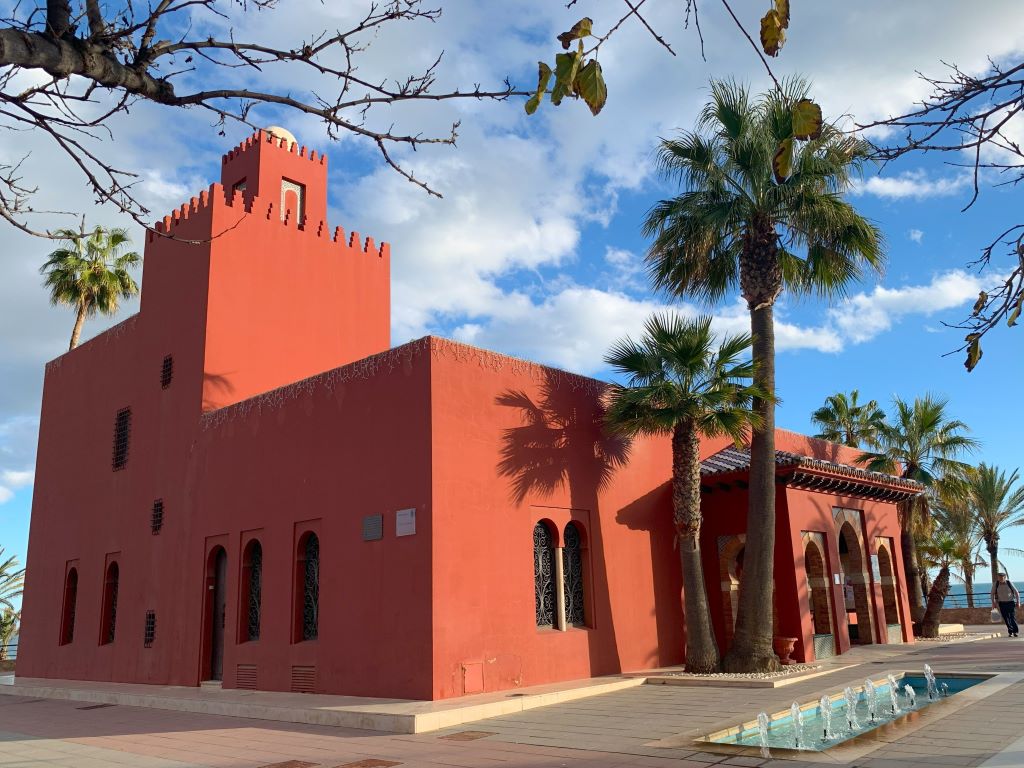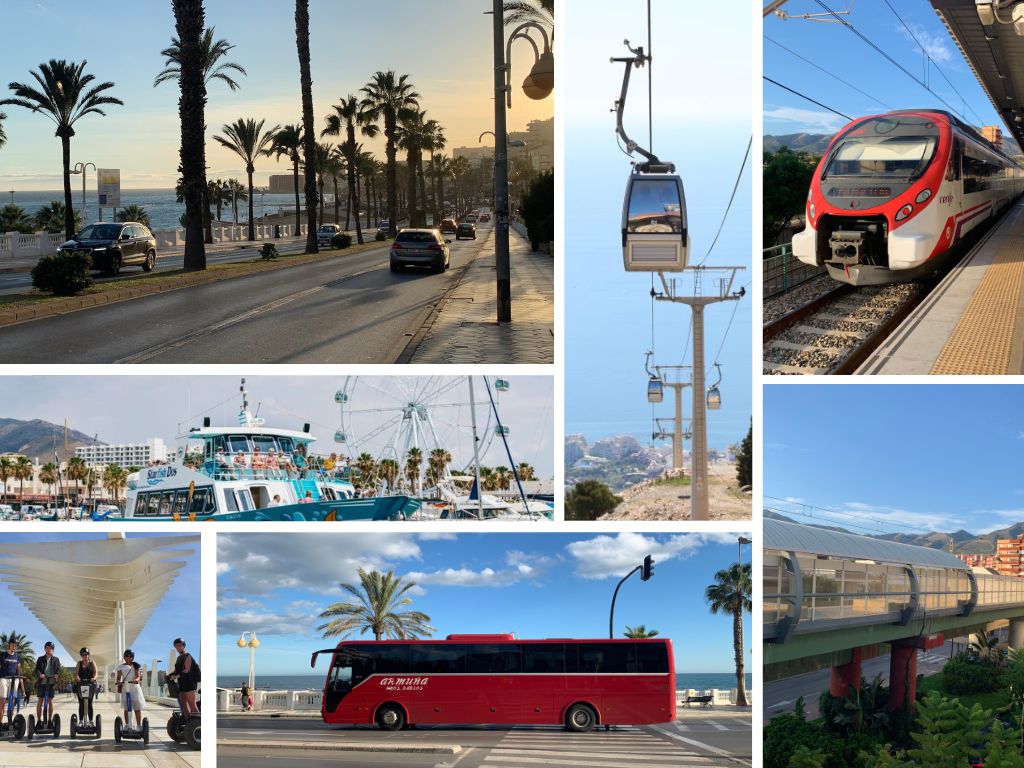May 13, 2023
Last updated on September 26, 2024
I often see people asking how is the weather in the Costa del Sol in May… and April, October, January, etc. I guess it is because people like to plan their vacations ahead but are unsure about what activities they can expect to do in those months or what clothes to pack. I’m also assuming they would rather hear from people that actually have been to the Costa in the same month they are planning to travel. So, here are my two cents on every single month in the Costa del Sol, Spain:
Table of Contents
January
January is cold, as in scarf and gloves cold in the early mornings and at night. 8:00 AM temperatures are around +10oC, sometimes less, but can reach +20 oC or close to it at noon. (Ok, keep in mind you are reading a Brazilian perspective of what is cold.) It can rain, and sometimes it rains for a whole week. Calima can happen in the winter months so, if you have any respiratory problem, it is better to avoid coming during this time; leave it for summer or autumn, as spring may also be a problem.
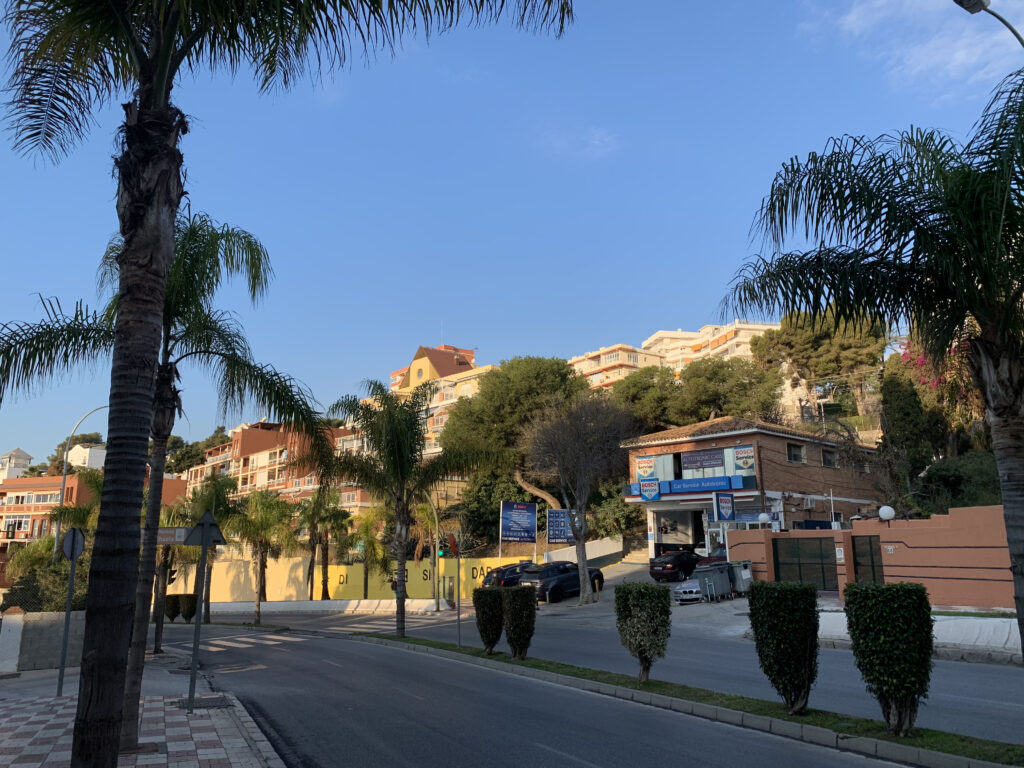
Most of the time, though, the sun is shinning and it is a good time for seaside walks and walks within the cities. The orange trees are full of fruits and, against the blue sky, which is still the norm during January, they look gorgeous. You may notice, though, that some of the commerce is will open only for a few hours per day.
If you live in a Nordic country, coming to Spain in January is a good way to scape snow – no shoveling around here! – and to beat the darkness depression; also, accommodation prices are at their lowest. So, in short, I would say it is a good time to come if your goal is to escape somewhere cold and to get to know the Sunny Coast without the crowds. If you have more questions about the weather and clothes this time of the year or if you are looking for interesting activities to do in January, check our post dedicated to January 2024, Things to do in January in the Costa del Sol – 2024 edition.
Related posts:
Things to do in January in the Costa del Sol – 2024 edition
Winter on the Costa del Sol – Embracing the magic
February
February is slightly warmer than January, on average. There are warm days and chilly nights, with an average of eleven hours of daytime. It can rain a bit, and it is not yet time to go to the beach, though you may get a bit of a tan if you are brave enough and stay in a place that has a terrace; sunbathing between 14:00 and 16:00 is often possible, but you wouldn’t want to go to the beach because it can be quite windy. Except if you want to build a sandman, of course!
Related posts:
February in the Costa del Sol – carnival, romance and fun funerals
Winter on the Costa del Sol – Embracing the magic

March
March is better, and as soon as spring starts, temperature are really lovely – the breeze is fresh, not cold, and it does get hot under the sun. Northern Europeans seem to enjoy going to the beach already at this time of the year. Mornings are around +15 oC, noons about 22 oC. There can be a little rain but usually not much (in 2024, though, it rained quite a lot through all of the last week of March, which coincidentally was the Holy Week). Some episodes of fast winds can happen, meaning: don’t leave small things on your balcony, or they may fly.
Calima, which is associated with wind, is still a possibility – personally, the two times I saw Calima in the Costa del Sol were both in March (2022 and 2024). It doesn’t last long; the main concern is that it can aggravate respiratory problems. Bring a light coat to get out in the evenings, jeans trousers and a few T-shirts and you should be good. Bring large glasses and sunglasses too, so that you don’t get sand in your eyes if the wind starts out of nowhere!
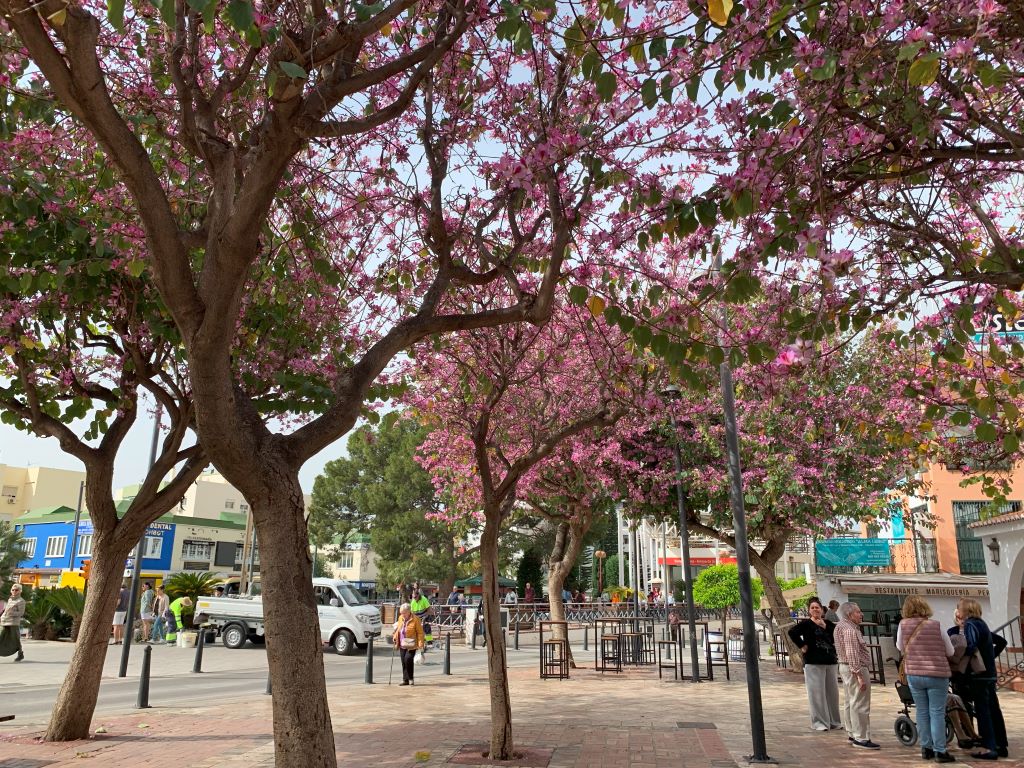
Related posts:
Calima
Weather in March in the Costa del Sol + so much more
Spring on the Costa del Sol – Blossom extavaganza and blue skies
April and May
April and May are very pleasing, getting warmer by the day. Though there is still a chance of rain (in 2023, it rained for about a week in May), it is mostly a great time to go to the beach. Put your sunscreen on and enjoy the beautiful place, weather, lovely breeze, food and everything this place has to offer, which is a lot. Also, tourists are not so abundant, so you can enjoy the surroundings freely. Spain in April has a moderate weather that already allows the brave to dip in the sea, at least in the south. Beware, though, that the water is cold.
Accommodation is more affordable in these months than in the summer, there are more tables available in restaurants, you may even get luck and find a spot to park your car (though I wouldn’t count on it). Also, because it is spring and the Costa del Sol is full of flowers, you get the extra perk of seeing the Jacarandas in full purple joy – in April, but not in May – (if you have a problem with pollen, better avoid coming this time of the year). This is my favourite time because its when Benalmádena smells like flowers.

Related posts:
Events in April in the Costa del Sol
The best of May in the Costa del Sol
Spring on the Costa del Sol – Blossom extavaganza and blue skies
June, July and August
I would avoid, if possible. Many locals scape from Spain in these months because it gets too hot. It also gets crowded. How crowded? Well, Benalmádena has a permanent population of about 70.000 people, but reaches 280.000 in the summer.
People with school aged kids can’t really avoid having vacations in summer; if that’s your case, come in June rather than July, and July rather than August. The places are less crowded in early summer because schools around the world finish on different dates, mostly sometime between end of June and end of July. Therefore, June is the less crowded month of the summer, and August, the crowdest.
Also, during the daytime it is so hot that going out is a bit of a struggle. Most of the people I know gather together in these months only after 6 or 7 PM; before, people would melt (ok, but almost). These are not good months to go for walks during the hours between 10 AM and 6 PM; if you still want to try, bring buckets of sunscreen. You sure can buy more in Spain; the initial buckets are just so you can get to the closest drugstore or supermarket to get more. Bring a large cup for water, and keep drinking.
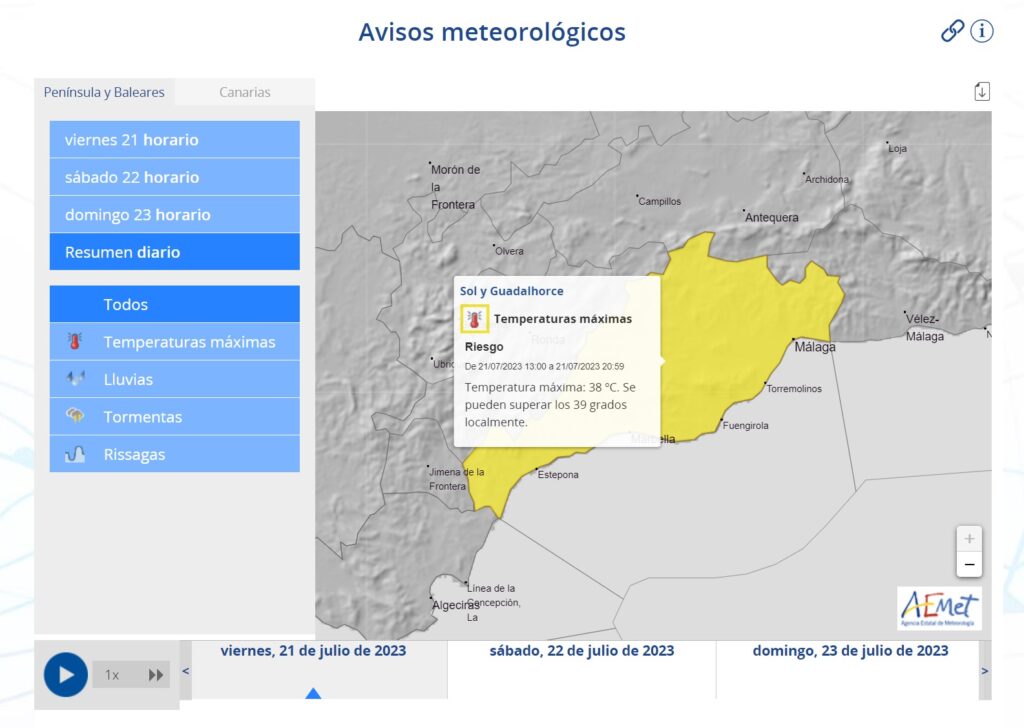
The forecast for July 22, 2023, informed that temperatures could reach more than 39oC that day.
Good luck finding a parking space – we leave our car in the garage because it is extra impossible, except for the supermarket garages. And, in my humble opinion, it is too hot to go to the beach. When we go, it is usually after 6 PM – still plenty of sunshine and hot! It is day until about 9:30 PM. And we take our beach tent. Some locals take real pergolas to the beach, and many tourists rent a chair with an umbrella – all good options.
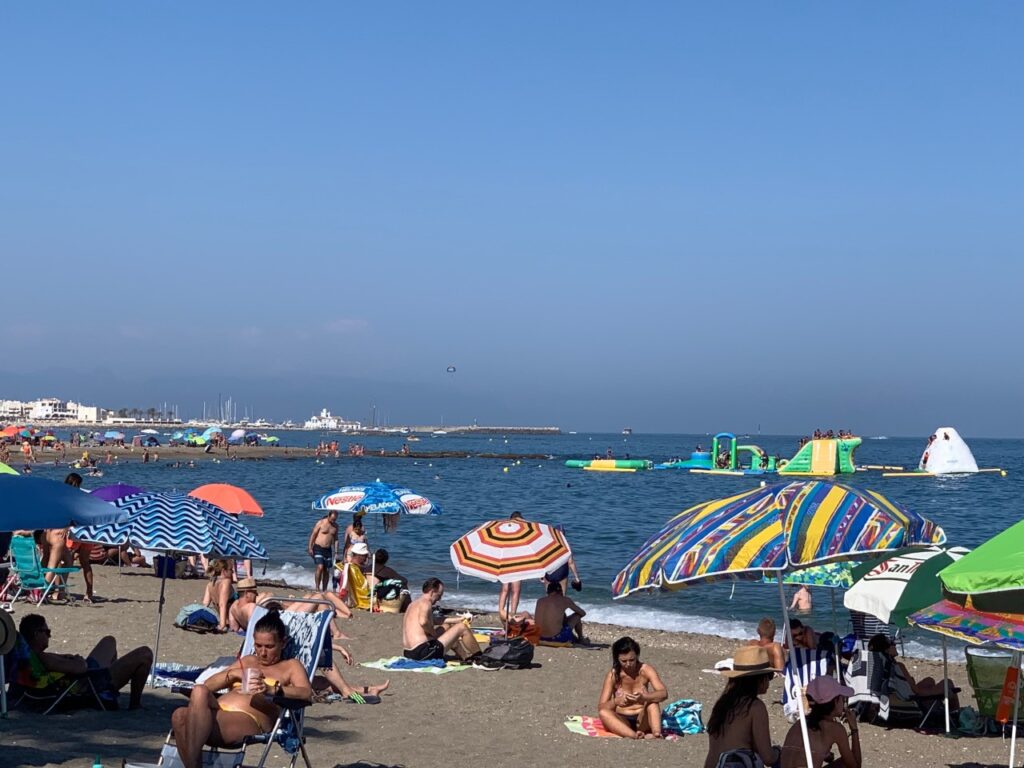
September
September is similar to April and May, without the pollen. The weather starts to cool down, but it is still more than enough to enjoy the beach. Note, though, that accommodation prices are still similar to the summer months. After all, it is still summer up to the 21st, though, in practice, it becomes autumn on the first day of back to school!
If you are coming this time of the year, try to book for after the school starts, as the prices start to fall from that point on. 😉 And check Traveling to the Costa del Sol in the Fall! Will you need a sweater to go out in the evening? Probably not. But bring one anyway, just to be on the safe side; you will probably use it on the plane anyway, so it doesn’t even take space in your luggage!
Related post:
The best of September in the Costa del Sol
October
It is getting more pleasing. Similar to March, some still are brave enough to go to the beach, but now it is mostly the time to walk on the seaside paseos (promenades) that abound in the Costa del Sol towns. The days are sunny, the landscape is beautiful, there is still a lot to enjoy – just maybe not so often a sea dip, that’s all. Most restaurants work normally at this time of the year.
October marks the start of the rainy season in the Costa del Sol, which continues until May. But it is not very much of a rainy season, really; it is more like it may or may not rain a little bit somewhere in the Costa, probably during the night. Heavy rain, that lasts for hours, is so very rare.
In a sense, I find October a better month for vacations in the Costa del Sol than the summer months because now you can go out anytime of the day. You’ll probably be able to explore more of the area and won’t feel like you are melting.
October 2023 was a bit of a mixed time: the first half was summer all the way, with a little bit of milder mornings (Kiddo was going to school wearing a light sweater and forgetting it there when it was time to go back home). The forecast for the second half included some rainy days, but almost nothing really fell, at least that I could see. I guess October is a bit of a wild card weatherwise, but you can prepare for that by including some indoor activities in your plans, in case it rains.
Related post:
Traveling to the Costa del sol in the Fall
November and December
Similar to January and February, but a little warmer. There is still sun and it is still beautiful, if you like walking and sightseeing you can have a great vacation. Bring a light coat with you and a sunscreen, and you can walk around during the daytime comfortably.
As for clothes, no matter when you come, always bring at least one pullover (even in summer, because at night the temperature can drop to pullover level). A coat is advisable from November to February, as well as scarfs and gloves if, like me, you were born and raised in tropical weather. Bring (and use!) sunscreen anytime of the year. I can’t guarantee it won’t rain, but I can tell you rain is a rare occurrence out of the winter months, at least in the Sunny Coast cities – inland may be different; there are even parts of inland Andalucia where it snows during the winter!
Next: 24 Things to do for free in the Costa del Sol

